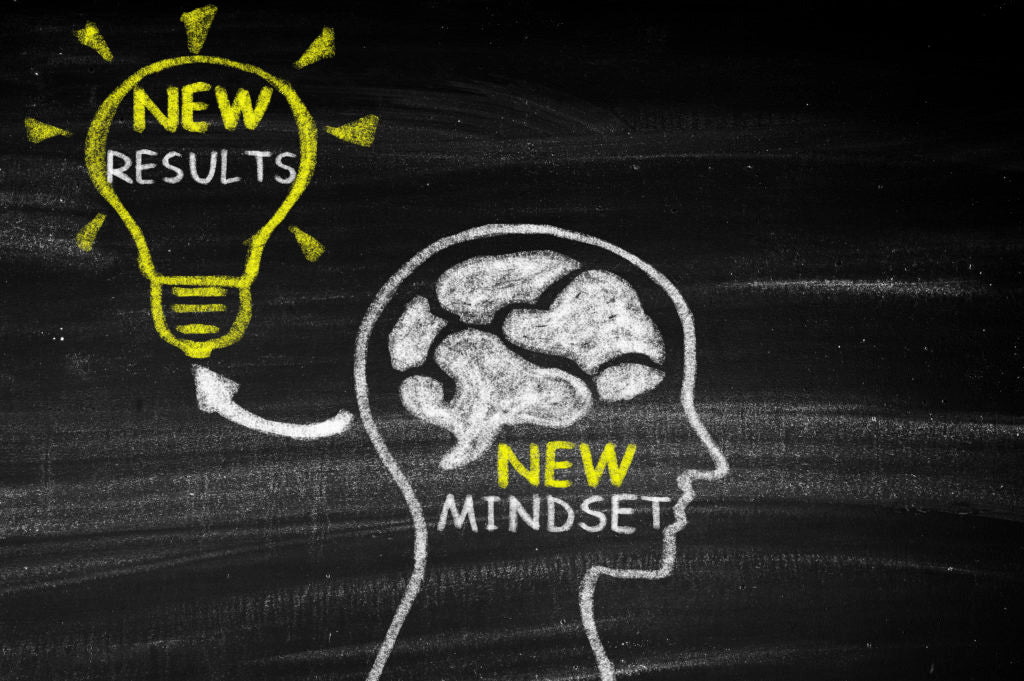
Dry January Revisited
In recent months we collectively at The BTN Academy and me myself (Tom) personally have spoken a lot about working out your values, understanding what you really believe, and then trying to align your actions with these things in order to live a better, more fulfilling life in which your goals are more meaningful.
Throughout this process, for me at least, integrity – defined as being the property of being honest with strong moral principles – is an extremely common answer to the question “What do I think is important?”. It’s not just important because it helps you appear more trustworthy (though unfortunately that’s how it’s often sold), it’s important because it feels good. It helps you stand up straight and speak with confidence in what you’re talking about.
Well, in an effort to live up to that, I like to semi-occasionally ask myself a question: when did you last change your mind about something?

I like this because it’s a good test of a few things, primarily open mindedness and the avoidance of hard yet unhelpful dogma, but it’s phrased in such a way as to reflect something else that I think is important.
If we ask ‘when were you last wrong about something?’ which is basically the same question, it frames our search as trying to find exceptions. To ask when you were last wrong is to imply that you’re always right other than this or that time. That you know for sure you’ve been correct ever since this aberration. That would be nice, but that’s unlikely to be the case. We’re all wrong about most things, most of the tine. Being correct is the exception rather than the rule, and expertise is simply being less wrong about a specific area than most people are.
That is to say; most of what I feel I know is likely to be wrong – or if not wrong, it’s shallow, poorly justified, and would crumble if someone asked me about it. For example, I know that in order to work, my car burns fuel. I’m pretty sure I’m not wrong about that, but if you were to ask a single clarifying question – where in the engine does that happen (does it happen in the engine?), what happens once it’s burned? Is it heat? What does the heat do?
No idea. And because of that I think it’s better to ask when you last changed your mind rather than when you were last wrong. It keeps us honest.
SO, to the point, what did you last change your mind about? My answer is Dry January.

Dry January is a campaign to avoid alcohol during the month of January, and up to now I’ve been fairly supportive of the idea. If even a few people cut their drinking down as a result of participating, that’s likely a good thing, right?
After all, There were an estimated 20,470 alcohol-related deaths in England in 2020, an increase in the rate to 37.8 per 100,000 population from 36.4 in 2019″ (1), which I think we can all agree is a problem. Globally, alcohol is estimated to account for around 5% of deaths (2) as well as around 5% of years lost to disease and injury (2). And that, of course, is before we talk about the societal and interpersonal problems in which alcohol plays a role, the barrier it places in the way of people who want weight loss or muscle gain, and so on.
Given all of this, it would make sense to support the Dry January campaign, right? Well, I’m not so sure anymore.
The first reason for this is the hard data. As of 2021 there doesn’t seem to be a reduction in the number of times people drank, or the amount they drank, after taking part. (3). Or to put it another way, even though more people are taking part in Dry January, that’s not translating to fewer people drinking, or drinkers drinking less. That means that while, yes, dry January involves drinking far less or not at all, that’s unlikely to make much of a difference to the long-term health of drinkers.
So that’s it, it’s neutral, but the issues don’t stop there.
The second reason I’ve changed my mind on Dry January is this – Dry January seems to fit into a category of things like wearing FitBits or downloading MyFitnessPal, that I would call surrogate health behaviours or SHBs.
That is, healthy-feeling things that people do instead of doing healthy things.
To be clear, a lot of people (including a lot of my own clients!) use those tools to make living a healthy lifestyle easier. They can absolutely contribute to improving your health, but that’s just the thing: those who are helped by Fitbits and Tracking Apps started to do healthy things, or at least decided to do healthy things, and then got those products to support the journey they were going on anyways.

A lot of the time, however, people get a FitBit or download MyFitnessPal and hope that doing that will motivate them to get cracking, and it more or less never does. It feels like they’ve done something, though, and that leads to some degree of complacency. “I’m wearing a fitbit every day and counting my steps, I don’t ever hit my target but I think about it every day now and wear my watch” can give a similar sense of satisfaction as you’d get if you just…started walking every day, but it doesn’t give the same outcomes.
I see Dry January in a similar vein; if you’ve decided to stop or cut down drinking and you’re using Dry Jan as a kickstart, I can imagine that’s a really good way to do it and sincerely, good luck, I wish you all the best and hope you’ll reap all the benefits associated! No shade, no doubts, that’s a great idea.
According to the data, however, that’s not what’s happening for the most part.
Instead, according to the data people just do it, perhaps as a challenge, perhaps as a ‘detox’ post Christmas, but either way those who take part overwhelmingly tick off the healthy ‘drink less’ thing in their head, and then go back to drinking safe in the knowledge that they achieved something positive.
And to be clear, they probably did, but that’s undone by the following 11 months of drinking just like always.
What would I prefer, or what would I suggest as a better national strategy? For me, I’d rather see increased promotion of genuinely enjoyable alcohol-free alternatives in bars, clubs, and pubs, along with an increase in social activities that adults can do without alcohol being present. Think about it, can you list 5 things that adults can do with their friends after work, that don’t involve drinking, and that don’t get old after the first go or two?
I love an escape room but it’s not going to be a weekly thing…
Whenever working with clients who wish to cut down on their drinking, this is a great first port-of-call. It’s not just about swapping soft drinks in for alcohol every here and there, or asking them to drink slower, the important thing is replacing the fun/social side of drinking with something else and so you have to work out a big list of ideas for that. If everyone taking part in Dry January spent the month doing that as well (or just instead, I would go so far as to say), I would wager the behaviour change would be more likely to stick, leading to far greater improvements in health and wellbeing.
And isn’t that the point?
You can now study individual module with the Nutrition CPD Courses and Qualifications which has a module all about alcohol.
Thanks for reading.
References:
1 – https://www.gov.uk/government/statistics/local-alcohol-profiles-for-england-lape-december-2021-update/local-alcohol-profiles-for-england-short-statistical-commentary-december-2021#:~:text=Alcohol%2Drelated%20mortality-,There%20were%20an%20estimated%2020%2C470%20alcohol%2Drelated%20deaths%20in%20England,compared%20to%202019%20(19%2C530).
2 – https://www.who.int/news-room/fact-sheets/detail/alcohol
3 – Case P, Angus C, De Vocht F, Holmes J, Michie S, Brown J. Has the increased participation in the national campaign ‘Dry January’ been associated with cutting down alcohol consumption in England? Drug Alcohol Depend. 2021 Oct 1;227:108938. doi: 10.1016/j.drugalcdep.2021.108938.